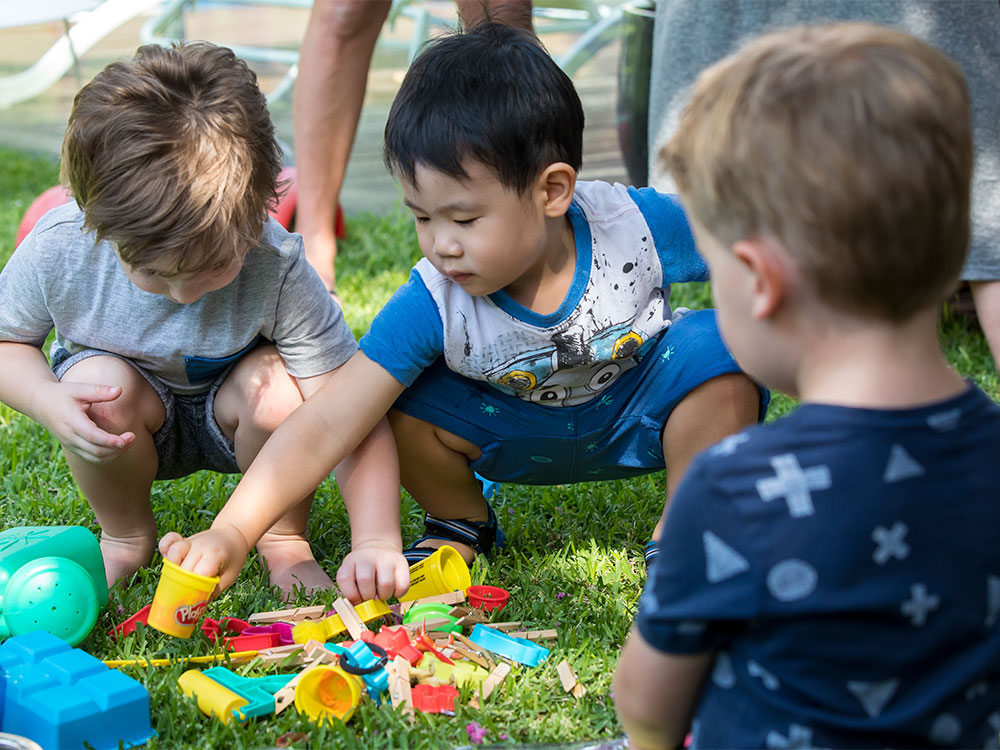Play is not just a pastime for children; it is crucial for healthy development and significantly impacts mental health. Engaging in play fosters physical, emotional, social, and cognitive growth. By recognizing the mental health benefits of play, parents, caregivers, and educators can create supportive environments that promote children’s well-being. This blog explores how play contributes to their mental health.
1. Enhancing Emotional Regulation
One of the key benefits of play is its role in helping children develop emotional regulation skills. This refers to managing and responding to emotions healthily. Through play, children can safely explore different feelings.
Role-Playing Scenarios
Role-playing is a powerful tool for emotional exploration. When children engage in imaginative play, they often take on different roles and act out various scenarios that evoke a range of emotions. For example:
- Exploring Different Emotions: A child might pretend to be a doctor, helping a stuffed animal feel better. This scenario allows them to express empathy and compassion while also exploring feelings related to care and concern.
- Navigating Conflict: Through role-playing games that involve conflict resolution, children learn how to handle disagreements and express their feelings constructively.
Creative Expression Through Art
Artistic activities like drawing, painting, and sculpting provide a way for emotional expression. Children may lack the words to articulate their feelings but can convey emotions through their art.

- Visual Representation: A child who feels sad can express this feeling by using darker colors or depicting scenes that reflect their mood. This creative outlet enables them to process emotions that might otherwise be difficult to articulate.
- Therapeutic Benefits: Engaging in art can also be therapeutic, helping children relax and reflect on their feelings.
2. Fostering Social Skills
Play is inherently social, offering children opportunities to interact with peers and develop essential social skills. These interactions are vital for building relationships and understanding social dynamics.
Teamwork and Cooperation
Group play activities encourage teamwork and cooperation among children:
- Collaborative Games: Games that require teamwork, such as soccer or relay races, teach children how to work together towards a common goal. They learn the importance of communication, sharing responsibilities, and supporting one another.
- Negotiation Skills: During play, children often negotiate roles or rules within games. This process enhances their ability to communicate effectively and reach compromises.
Empathy Development
Engaging in play helps children cultivate empathy—the ability to understand and share the feelings of others:
- Understanding Perspectives: When children role-play different characters or scenarios, they learn to see situations from various perspectives. This practice fosters empathy as they begin to understand how others might feel in similar situations.
- Emotional Connections: Playing with peers allows children to form emotional connections, which are essential for developing meaningful relationships.
3. Reducing Stress and Anxiety
Play serves as a natural stress reliever for children, allowing them to escape from daily pressures and engage in joyful activities that promote relaxation.
Physical Activity and Endorphins
Active play is particularly beneficial for reducing stress:

- Physical Exercise: Activities like running, jumping, or climbing release endorphins—chemicals in the brain that act as natural mood lifters. This physiological response helps alleviate feelings of anxiety and stress.
- Outdoor Play: Spending time outdoors while playing can further enhance mood by providing exposure to nature, which has been shown to have calming effects on both adults and children.
Mindfulness Through Play
Play encourages mindfulness by allowing children to focus on the present moment:
- Engagement in play: whether building with blocks or playing tag—helps children focus and reduces rumination on past worries or future anxieties.
- Mindful Play Practices: such as slow-paced activities like yoga or guided imagery, can help children develop mindfulness skills during playtime.
4. Boosting Cognitive Development
Play is not merely fun; it is also an essential component of cognitive development. Engaging in various types of play enhances critical thinking skills and creativity.
Problem-Solving Skills
Through play, children encounter challenges that require problem-solving abilities:
- Puzzles and Strategy Games: Engaging with puzzles or strategy-based games helps children learn how to approach problems methodically and think critically about solutions.
- Trial and Error: Play often involves trial and error; when children experiment with different approaches during games or activities, they learn valuable lessons about persistence and adaptability.
Imagination and Creativity
Unstructured play encourages creativity as children invent scenarios, characters, and stories:
- Imaginative Play: Activities like dress-up or building forts allow children to use their imagination freely. This type of creative expression stimulates cognitive flexibility and innovation.
- Storytelling: Encouraging storytelling during play helps develop narrative skills while allowing children to explore complex themes such as conflict resolution or moral dilemmas.

5. Building Resilience
Play helps build resilience by providing opportunities for children to face challenges in a low-stakes environment:
Learning from Failure
Experiencing setbacks during play teaches valuable lessons about resilience:
- Accepting Loss: When playing games where winning isn’t guaranteed, children learn how to cope with disappointment gracefully. They understand that losing is part of the game and can develop strategies for bouncing back.
- Growth Mindset: Encouraging a growth mindset—where challenges are viewed as opportunities for learning—can help foster resilience during play experiences.
Coping Strategies
Engaging in various types of play allows children to develop coping strategies for dealing with frustration or disappointment:
- Emotional Processing: When faced with challenges during play (e.g., not getting the toy they want), children learn how to process their emotions constructively rather than resorting to negative behaviors.
- Building Confidence: Successfully navigating challenges during play builds confidence in children’s abilities to handle difficulties outside of playtime.
Conclusion
The benefits of play go beyond simple enjoyment; they are crucial for nurturing children’s mental health and well-being. By encouraging various forms of play—structured games, imaginative activities, or free exploration—parents and caregivers can support emotional regulation, social skills, stress reduction, cognitive growth, and resilience. Recognizing the vital role of play means prioritizing meaningful experiences that equip children to thrive emotionally and mentally throughout their lives. Fostering an environment rich in playful learning helps ensure future generations grow into well-rounded individuals capable of navigating life’s challenges with confidence and joy.



